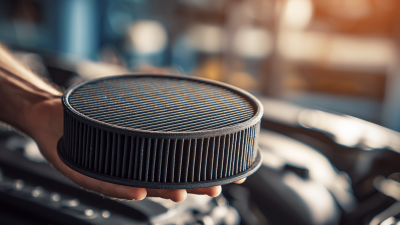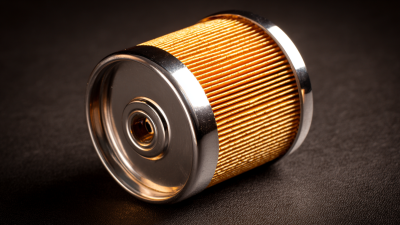Choosing the right car air filter is crucial for maintaining optimal engine performance and ensuring longevity. The car air filter plays a significant role in the air intake system, allowing clean air to enter the engine while preventing harmful contaminants from causing damage.
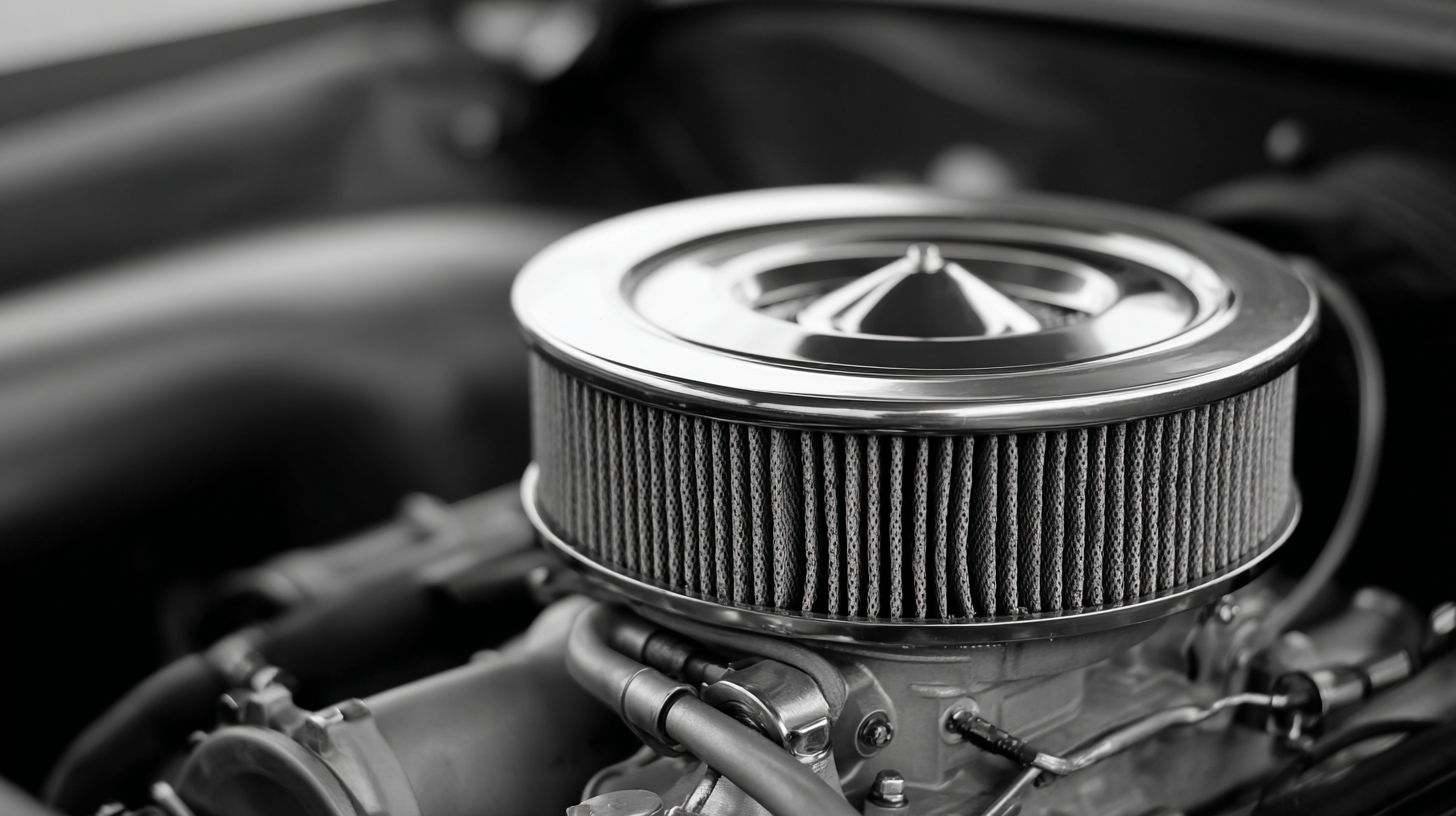
However, with the variety of options available on the market, selecting the appropriate filter can be overwhelming. This guide will provide you with essential insights into the different types of car air filters, their functions, and how to assess your vehicle's specific needs. By understanding the importance of a quality car air filter and knowing what to look for, you can enhance your vehicle's efficiency, boost fuel economy, and improve overall performance.
Let’s delve into the key factors to consider when choosing the right car air filter for your vehicle.
Car air filters play a crucial role in maintaining engine health by ensuring that only clean air enters the engine. This is essential because the engine relies on a precise mixture of air and fuel for combustion. A dirty or clogged air filter can obstruct airflow, leading to reduced engine performance, decreased fuel efficiency, and increased emissions. Regularly replacing the air filter is an often-overlooked maintenance task that can save drivers from more significant issues and costly repairs down the line.
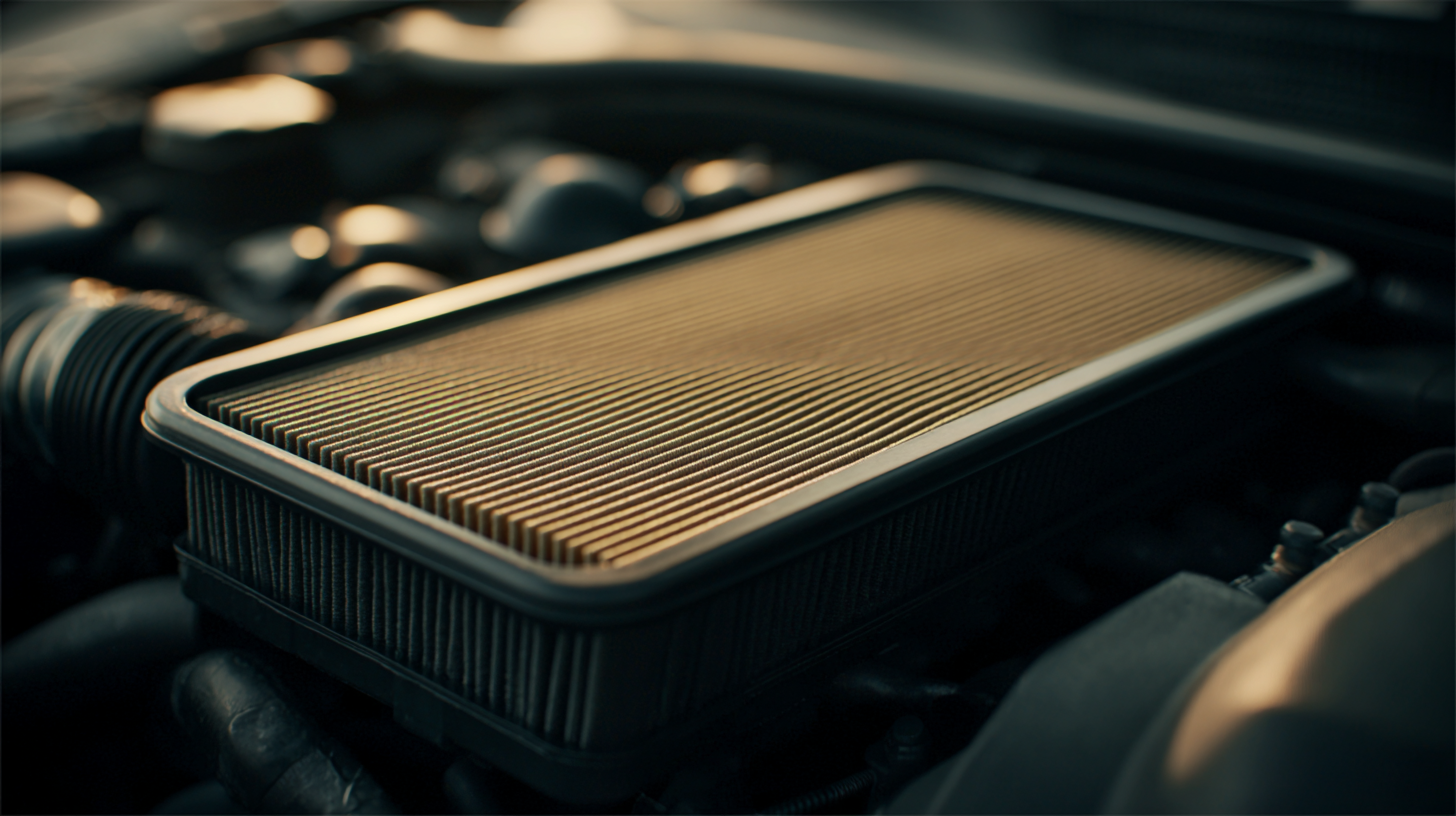
Moreover, air filters are vital for protecting sensitive engine components from harmful contaminants such as dirt, dust, and debris. These particles can cause wear and tear on engine parts, resulting in reduced longevity and performance. Hence, selecting the proper air filter is not only about immediate performance but also about prolonging the engine's lifespan. By understanding the significance of the air filter and opting for high-quality replacements, car owners can ensure their engines run smoothly and efficiently for years to come.
When it comes to maintaining optimal engine performance, choosing the right car air filter is crucial. There are several main types of air filters available for vehicles, each designed to meet specific engine requirements. The most common types are paper filters, foam filters, and cotton filters. Paper filters, which are the standard option for many vehicles, are designed for everyday driving conditions and tend to be cost-effective, albeit with a shorter lifespan. Studies show that a clean air filter can improve acceleration efficiency by up to 10%, making regular changes important for performance.
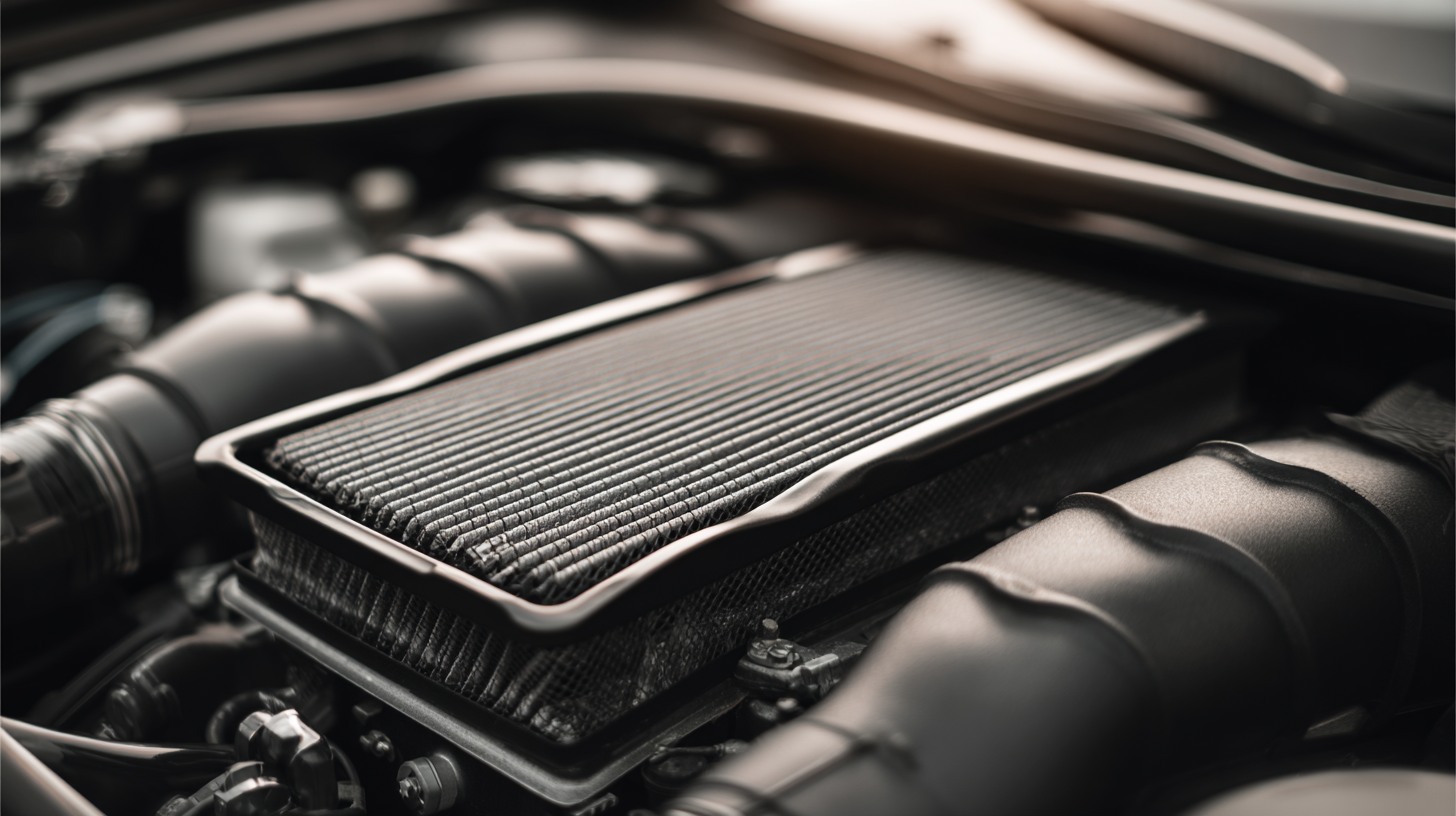
Foam filters, often used in off-road vehicles, provide superior filtration and airflow, making them suitable for extreme conditions. These filters can be cleaned and reused, offering long-term value for those who frequently navigate rugged terrains. On the other hand, cotton filters are known for their high airflow capacity and filtration efficiency. According to a report from the Automotive Maintenance and Repair Association, vehicles equipped with high-flow cotton filters can experience a 5-10% increase in horsepower. This makes them a popular choice for performance enthusiasts looking to maximize engine output while still protecting overall engine health.
Understanding the differences among these types of air filters, their advantages, and their applications can significantly impact a vehicle's performance and longevity. By making an informed decision based on the specific driving conditions and vehicle type, drivers can ensure their engines run smoothly and efficiently.
When selecting an air filter for your car, evaluating its quality is essential for maintaining optimal engine performance. One of the key features to consider is the filter’s material. High-quality filters are often made from pleated synthetic fibers, which can capture more dirt and debris compared to traditional paper filters. These synthetic materials not only enhance filtration but also improve airflow, ultimately leading to better engine efficiency and longevity.
Another important aspect to assess is the filter’s micron rating, which indicates the size of particles it can effectively trap. A lower micron rating means that the filter can catch smaller particles, providing superior protection for your engine. Additionally, consider the seal design of the air filter; a filter with a superior seal will prevent unfiltered air from entering the engine, ensuring that only clean air is used for combustion. By taking these factors into account, you can make an informed decision and choose an air filter that optimally supports your vehicle's performance.
When it comes to maintaining optimal engine performance, knowing when to replace your car air filter is crucial. According to the Environmental Protection Agency (EPA), a clean air filter can improve engine efficiency by up to 10%. Typically, vehicle manufacturers recommend replacing the air filter every 12,000 to 15,000 miles, but this can vary depending on driving conditions. For instance, those who frequently drive in dusty environments may need to replace their filters more often to prevent contaminants from entering the engine.
The benefits of timely air filter replacement go beyond engine performance; it also leads to better fuel efficiency and reduced emissions. A study by the Car Care Council indicates that a dirty air filter can decrease airflow, which may result in a drop in fuel economy by as much as 2-4%. Regular inspection and replacement of your air filter not only keep your engine running smoothly but also contribute to a more sustainable driving experience. Therefore, keeping track of your filter's condition can ensure your vehicle operates at its best while also promoting environmental responsibility.
| Filter Type | Average Replacement Interval (miles) | Benefits | Signs of Replacement |
|---|---|---|---|
| Paper Filter | 15,000 - 30,000 | Inexpensive, good filtration | Reduced power, poor fuel economy |
| Cotton Gauze Filter | 50,000 - 100,000 | Reusable, high airflow | Engine misfire, check engine light |
| Synthetic Filter | 30,000 - 60,000 | Excellent filtration and durability | Dirt buildup, poor air flow |
| Activated Carbon Filter | 15,000 - 20,000 | Odor reduction, improved air quality | Unpleasant smells, reduced airflow |
When selecting the right car air filter, it is crucial to consider both the driving conditions and the specific vehicle type. Different environments can significantly affect air quality; for instance, if you frequently drive in dusty or polluted areas, a high-efficiency filter designed to trap more particulates will better protect your engine. Conversely, if your driving conditions are generally clean and include mostly highway driving, a standard air filter may suffice and provide adequate airflow while maintaining engine performance.
Additionally, the vehicle type plays a vital role in air filter selection. Sports cars often require filters that enhance airflow to optimize performance, whereas larger vehicles like SUVs or trucks might benefit from filters that are designed for durability and long-lasting filtration. Understanding the engine specifications and the manufacturer's recommendations can help ensure you choose an air filter that not only matches your driving habits but also maintains your vehicle's efficiency and longevity.



